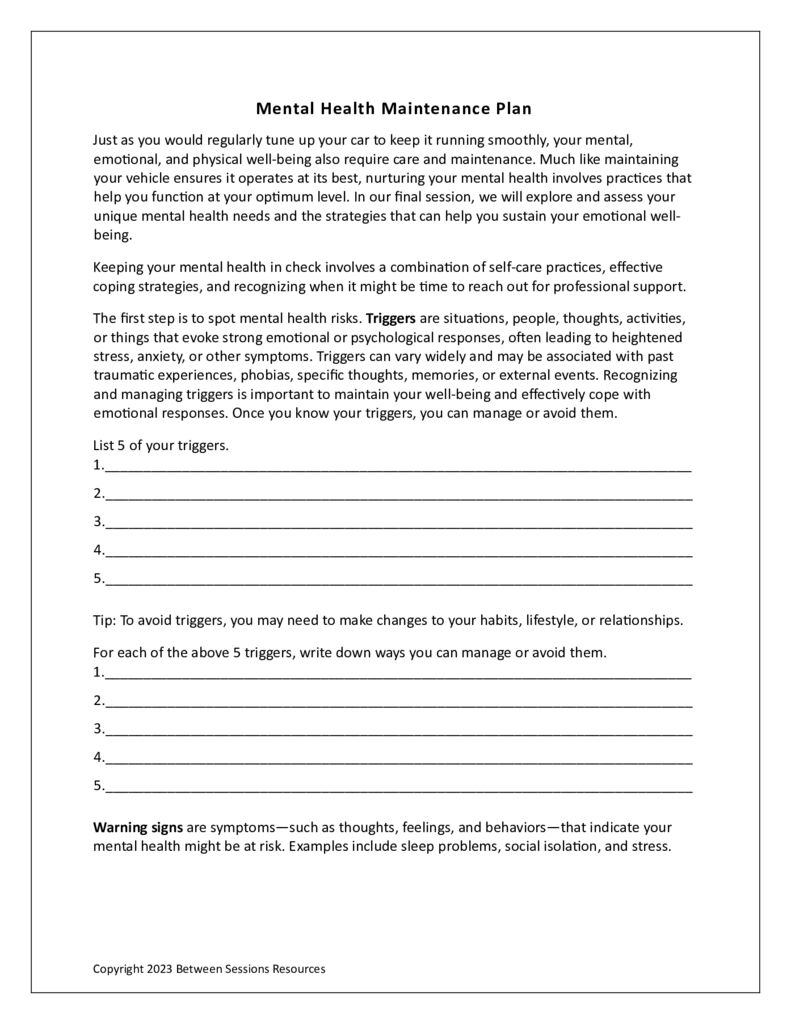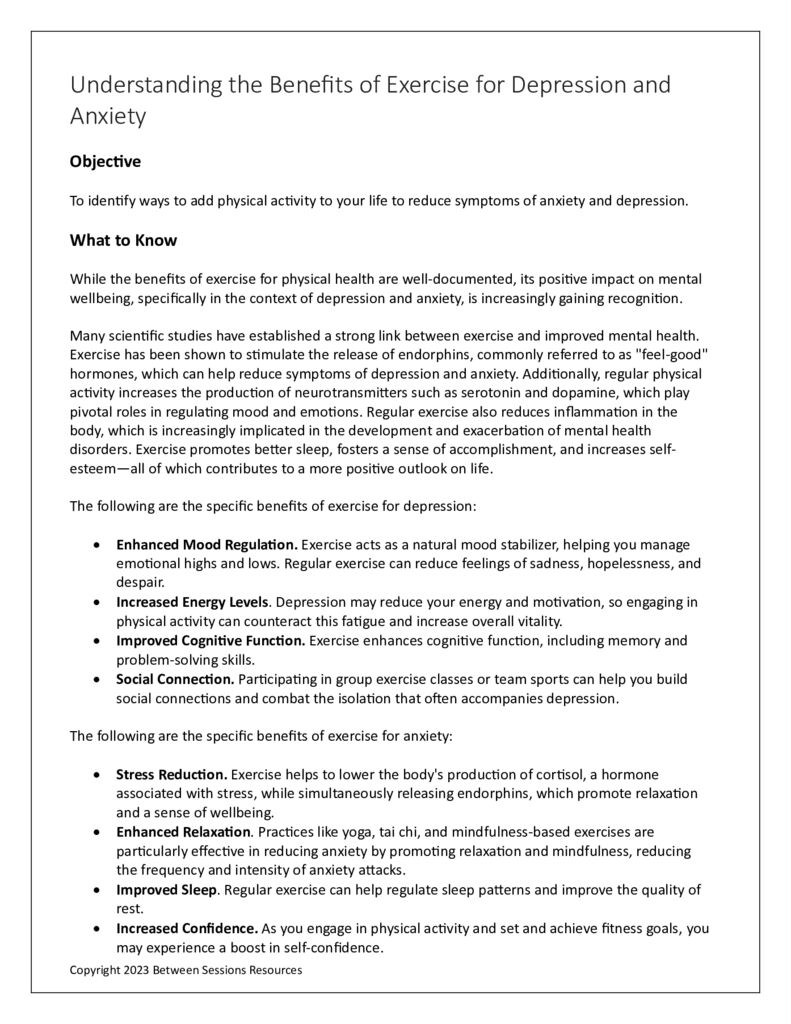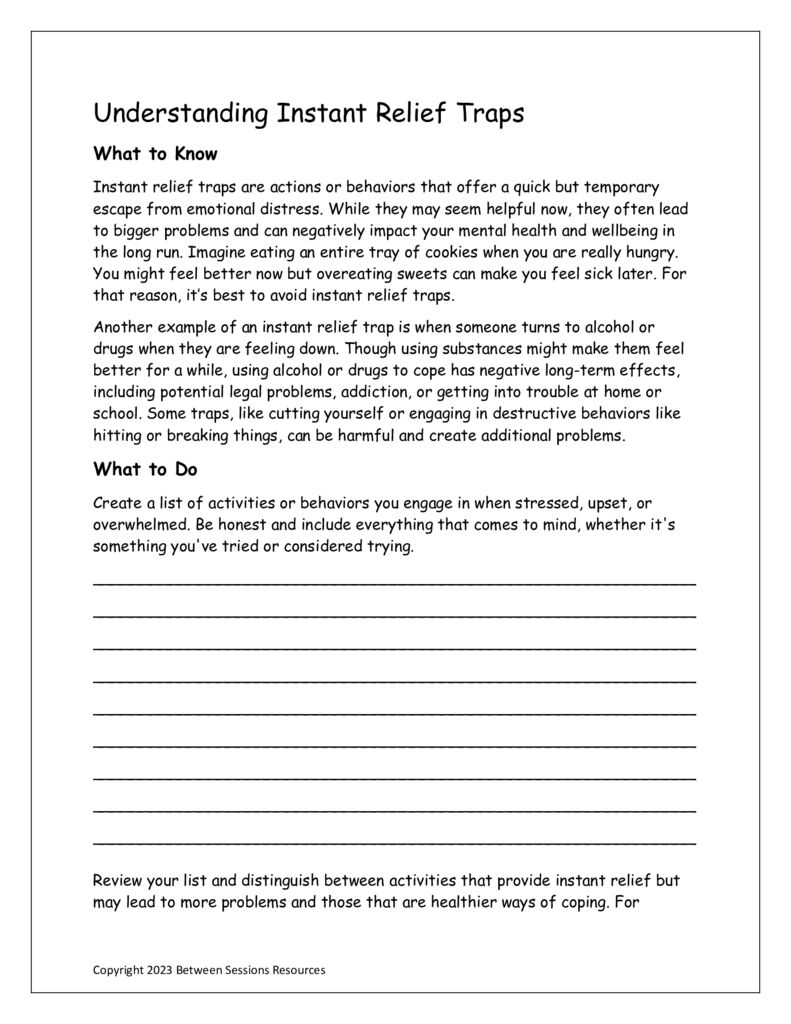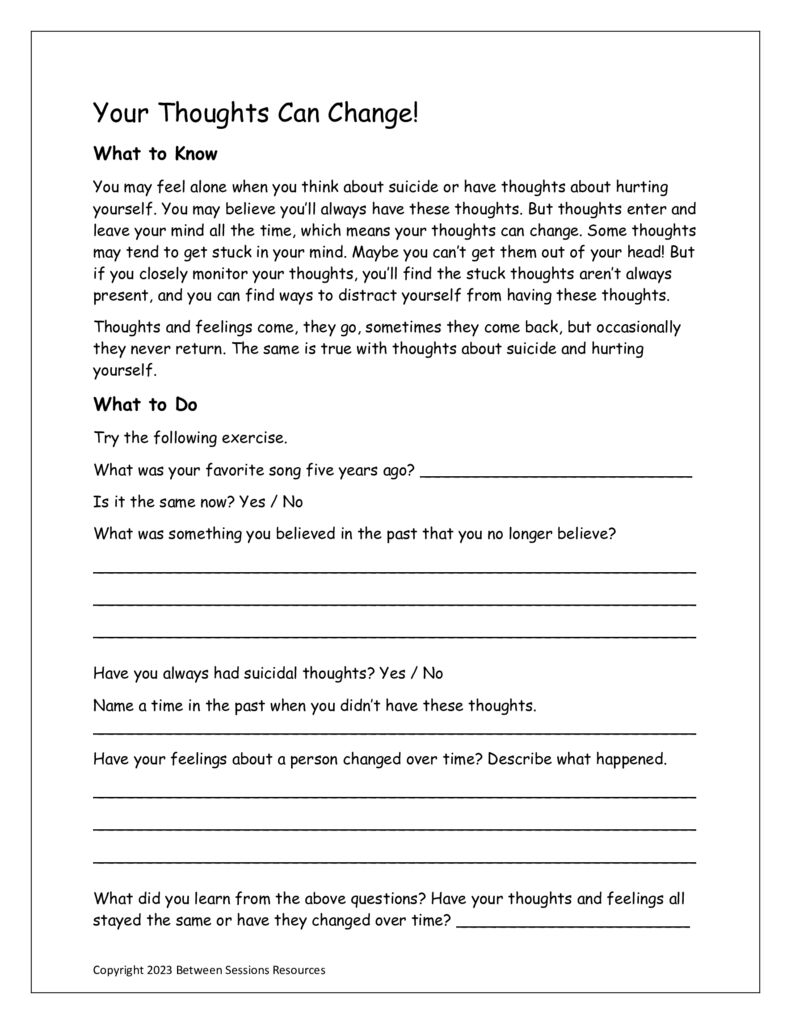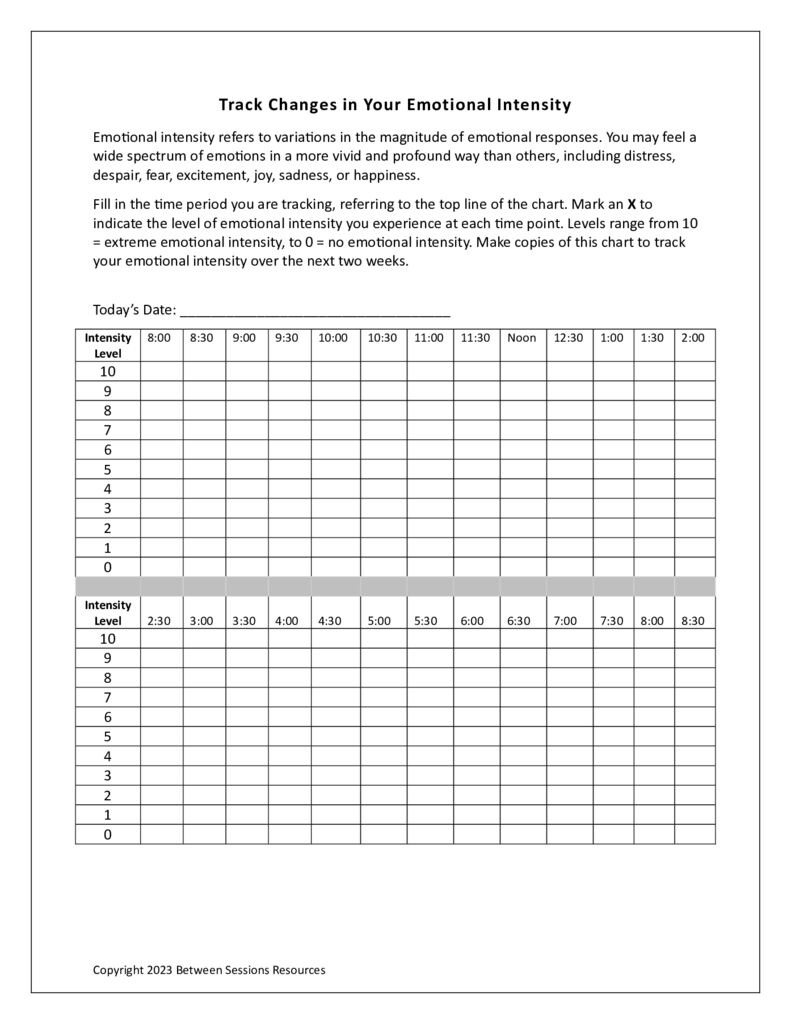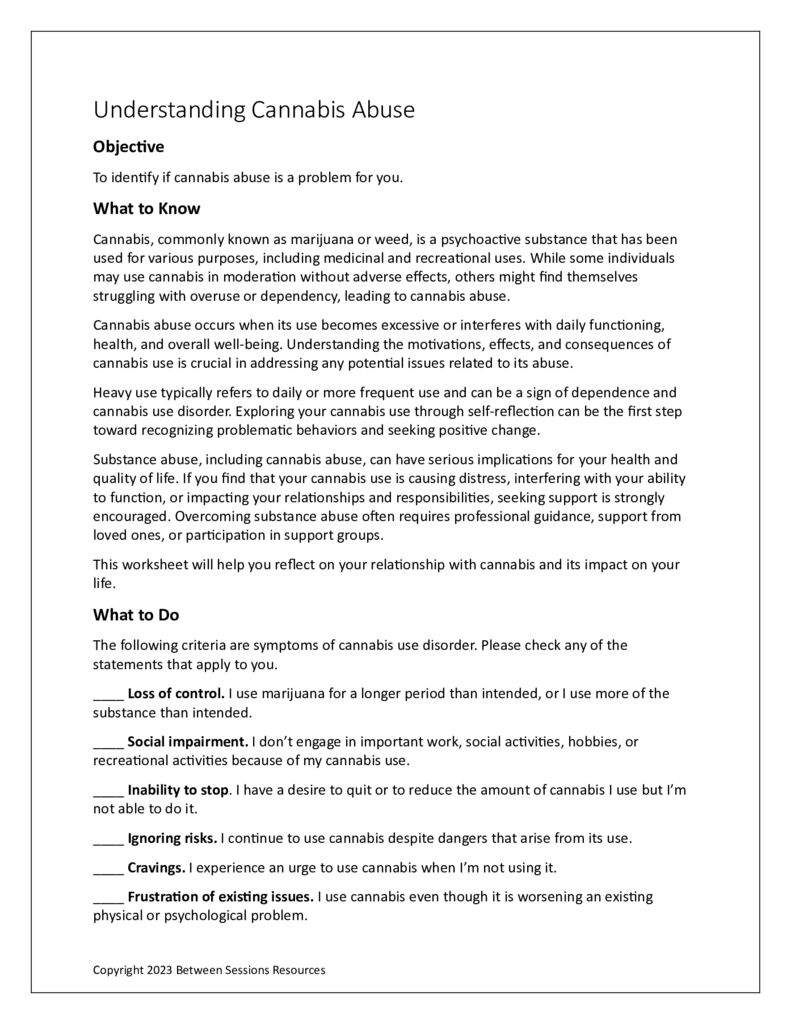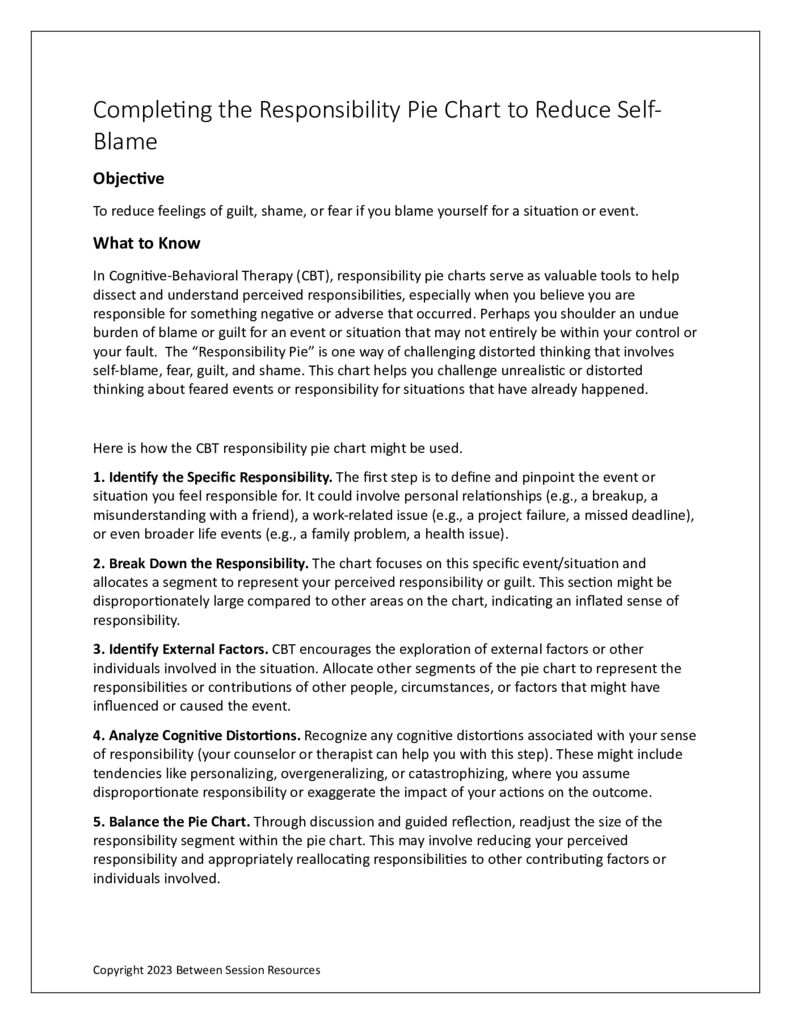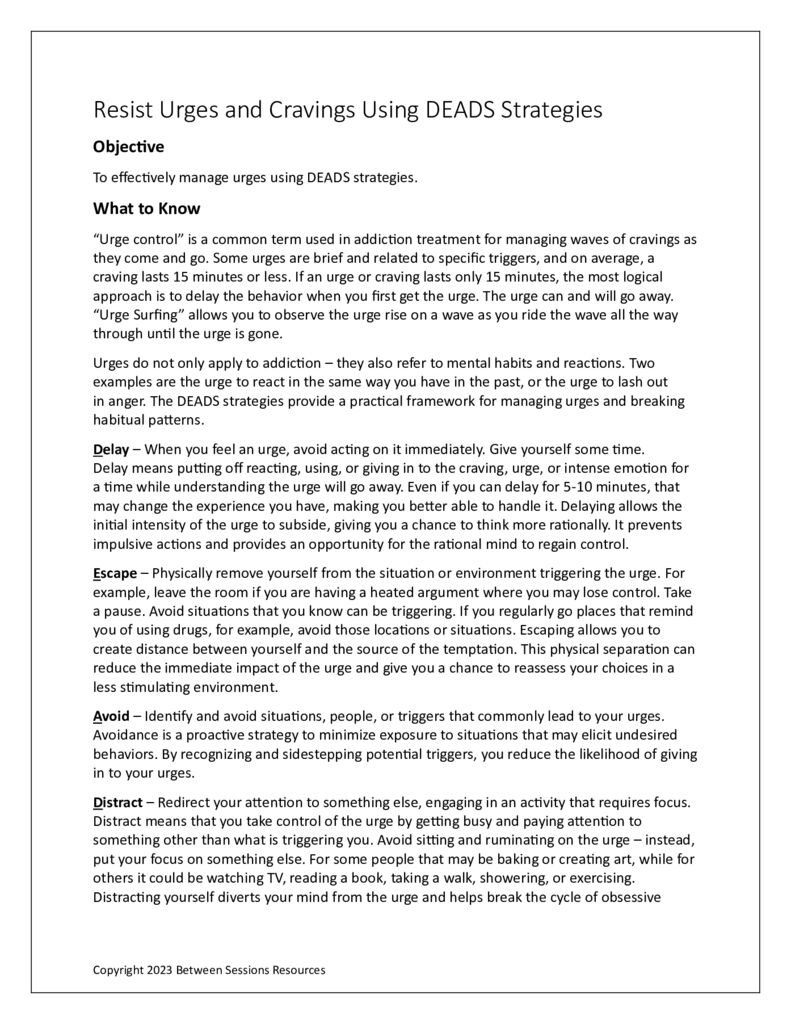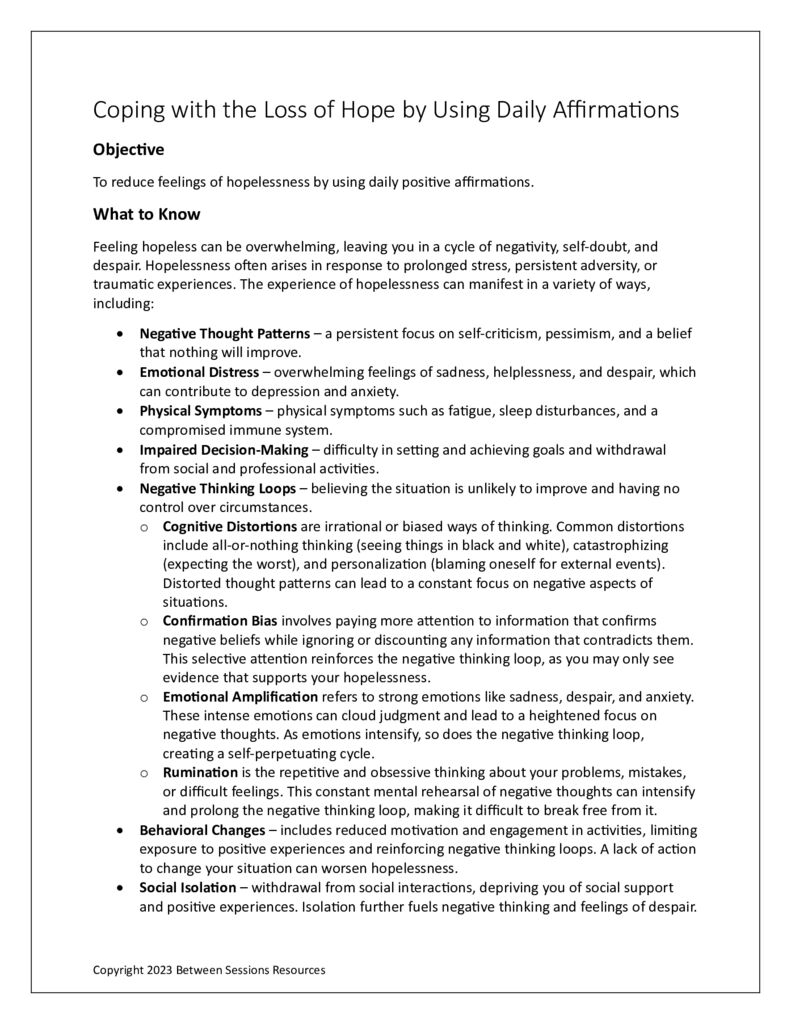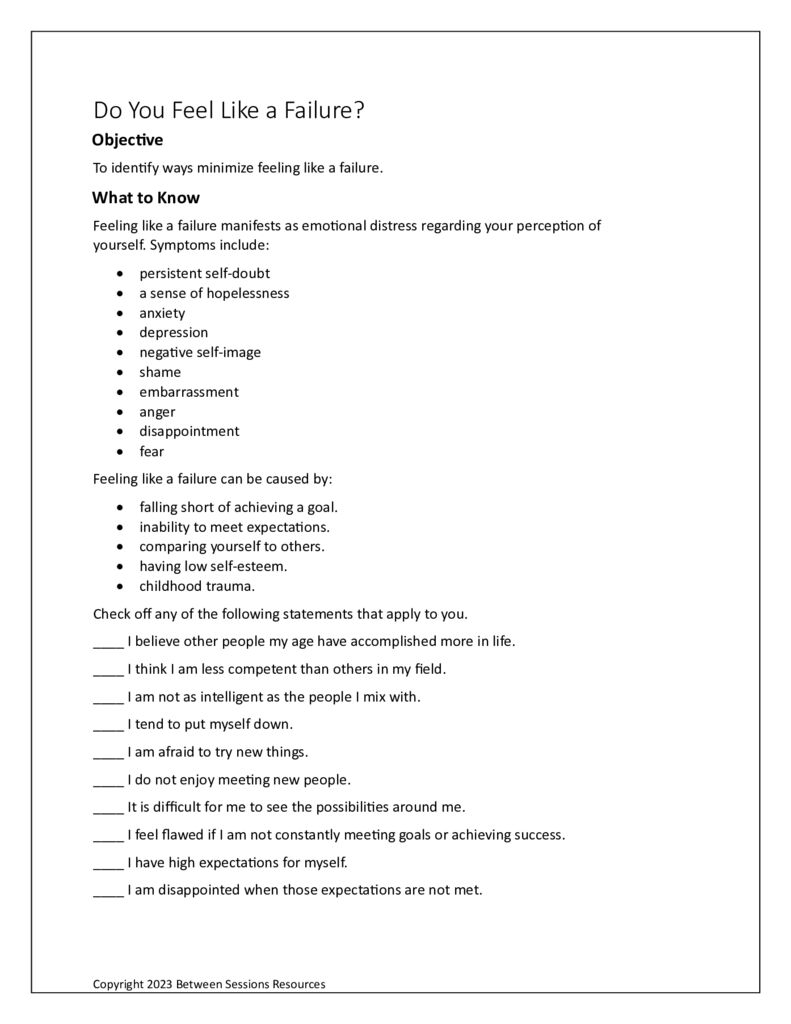Studies tell us that when professionals prescribe therapeutic homework, clients report significantly better outcomes. Our worksheets are derived from evidence-based therapies, and they are designed by experienced professionals. Use the navigation links on the left of this page to view tools in a specific category. Or use the search box at the top of this page to find the exact tool you are looking for.
To modify the tools, click the ‘Send to Client’ button by each tool to open the Psychology Forms Filler. You can then edit the tool as you see fit and either print it out or send it to a client to be filled out online. Click here for a tutorial on using the Psychology Forms Filler.
If you can’t find what you are looking for on this site, please let us know by
clicking here and our team of writers, graphic artists, and therapists will custom-design it for you.
Keeping your mental health in check involves a combination of self-care practices, effective coping strategies, and recognizing when it might be time to reach out for professional support. This worksheet helps people keep track of various wellness practices as well as identify the triggers and warning signs of mental health problems. (1223, wellness)
Many scientific studies have established a strong link between exercise and improved mental health. This worksheet specifies the specific mental health benefits that come with regular exercise and guides people on how to start a consistent and sustainable exercise program. (1223, exercise, depression, anxiety, wellness, habits)
Instant relief traps are actions or behaviors that offer a quick but temporary escape from emotional distress. This worksheet helps people think about behaviors they do for instant release and if they are helpful or hurtful to their physical and/or mental health.
This worksheet is for people who are having thoughts about suicide or self-harm. It is designed to provide insight into the nature of these thoughts and help people understand that these thoughts can change over time. (1223, suicide prevention, thought-changing, CBT, cognitive restructuring)
This form is intended to be used by people who have intense often overwhelming emotions, such as anxiety, fear, sadness, or even euphoria. The tracking form will help the therapist teach and monitor emotional regulation skills. (1123. emotional regulation, bipolar, Bipolar Disorder)
This worksheet is designed to help people determine if taking cannabis is affecting their daily functioning, health, and overall well-being. It includes a checklist of symptoms and a series of questions for people to reflect on the implications of cannabis use on their life choices. (1123, addiction, cannabis, habits, lifestyle)
In Cognitive-Behavioral Therapy (CBT), responsibility pie charts can serve as valuable tools to help dissect and understand perceived responsibilities, especially when people believe they are responsible for some serious problem or event. This technique asks people to identify and break down responsibility, identify external factors, analyze cognitive distortions, and develop specific coping strategies. (1123, CBT, cognitive restructuring, self-blame, depression)
The DEADS strategies provide a practical framework for managing urges and breaking habitual patterns. The acronym stands for delay, escape, avoid, distract, and substitute. This worksheet explains this technique and asks the user to keep track of his or her urges, the strategies used, and the results of using them. (1123. addiction, urges, impulse control)
This worksheet explains how hopelessness can manifest itself in a person’s daily life, including physical symptoms, impaired decision-making, and social isolation. It explains how affirmations can improve resilience, self-compassion, and positivity. The worksheet gives instructions on how to create meaningful affirmations and includes a chart for people to see how affirmations can affect their moods and behaviors. (1023. depression, cognitive restructuring)
This worksheet explores why some people bounce back from failure while others experience feelings of self-doubt, depression, anger, and disappointment. It suggests 8 ways to overcome the negative feelings that can accompany a failure, including engaging in self-compassion, focusing on the process rather than the results, challenging negative thoughts, and more. The worksheet provides questions to help people explore their feelings of failure and find appropriate strategies to move on. (1023, depression, anxiety, job satisfaction, anxiety)

